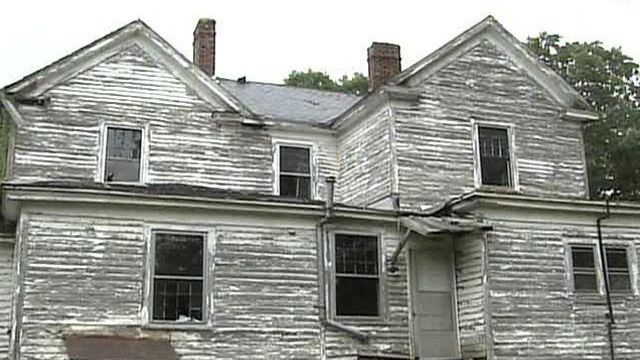Lost university: How an entire college vanished near downtown Raleigh
An unassuming green park near the Village District holds the remains of a university that was built in 1892 by a man freed from slavery in Raleigh. Today, the park holds barely a remnant of the lost college campus -- but that may soon change.
Posted — UpdatedToday, the wide-open green park tucked away in Oberlin Village holds almost no clues of its former life. The historic remains of an old well have been sealed up for safety. Old tree growth forms a canopy over the land that appears similar to some historic photos of the area.
Established by Rev. M. L. Latta in 1892, Latta University was just one of multiple historically Black colleges built in the aftermath of the emancipation. Shaw University opened in 1865, followed by St. Augustine in 1867.
While Shaw and St. Augustine offered studies in medical care, Latta University was established as a trade school, teaching skills like blacksmithing, carpentry, crafting horse shoes and brick-laying.
The good news is, after decades of slowly vanishing from the public eye and public memory, the City of Raleigh has a plan to keep the history alive in Latta Park.
How did Raleigh lose an entire university?
Several years ago, a student from Shaw University – which was also attended by Rev. M. L. Latta – heard about the remains at Latta Park and said, "What? I had no idea there was ever a Latta University! How could we have simply never even heard of an entire Raleigh college?"
The last remaining piece of Latta University burned down in 2007.
According to people who live in the nearby neighborhood, the Latta House was a center hold for community gatherings. Bill Shepherd, known as 'Shep,' would have musical gatherings and bon fires. While the Latta House stood, the community had a fixed reminder of the old university.
With nothing left of the landmark, many began fearing Latta's legacy and story would be lost.
Plans to create outline of the Latta House's footprint
Unfortunately, only after the historic home burned down was the Latta University Historic Park deeded to the City of Raleigh.
"Since then, the City of Raleigh has been the steward of this historic property, and we hope that by investing in this site we can do more to tell the story of Reverend Latta and why this site is such an important piece of Raleigh’s history," said Emma Liles, who had been helping manage the important project of protecting the Latta University legacy.
In 2018, the Historic Resources Program held a Latta Day Festival, hoping to highlight the history of the site – to help prevent it from fading from the public memory.
Additional historic signage, an enhanced site entrance, contemplative walking paths and and park benches are all part of the upcoming changes.
Liles has immense passion for the work being done to help ensure Latta's legacy is never forgotten – and that Raleigh never completely loses the history of this university.
"I’ve always been very touched by the fact that Rev. Latta created a Kindergarten department so he could invite orphaned children of formerly enslaved people to become students at the University. To me that just seems a step above and beyond just wanting to provide education for the community," she said. "I think it takes a lot of heart to accomplish what Rev. Latta was able to in his lifetime."
Tour the remains of Latta University & Historic Oberlin Village this weekend
- The site of Latta University
- Oberlin Cemetery
- Multiple Victorian homes belonging to early Oberlin families
- Wilson Temple United Methodist, one of the original congregations of historic Oberlin
Related Topics
• Credits
Copyright 2024 by Capitol Broadcasting Company. All rights reserved. This material may not be published, broadcast, rewritten or redistributed.






